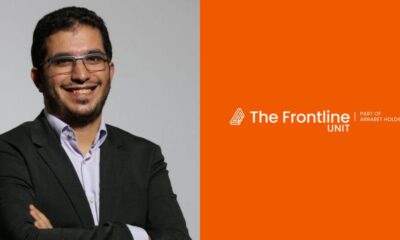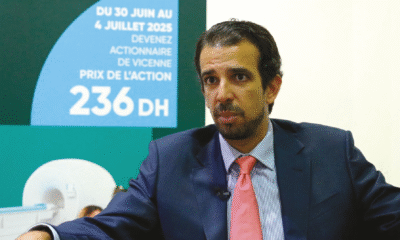Influences
Akhannouch: “Morocco aims to launch a national strategy dedicated to AI”
During his opening speech at the first National AI Conference, the head of government expressed the ambition to implement an effective and ethical national strategy serving inclusive and sustainable human development.

The holding of the first National Artificial Intelligence (AI) Conference reflects the collective will to place this technology at the heart of the government’s various public policies and aligns with the government’s ambition to implement an effective and ethical national strategy for inclusive and sustainable human development, stated the head of government, Aziz Akhannouch, on Tuesday in Salé.
Speaking at the opening of the conference, held under the High Patronage of His Majesty King Mohammed VI, Akhannouch emphasized that the world is currently undergoing a major technological revolution that is redefining economies and reinventing lifestyles. He noted that AI offers enormous opportunities but also poses many challenges related notably to digital sovereignty, social justice, data protection, and ethics.
Morocco has embarked on the path of digital modernization through the “Morocco Digital 2030” strategy, he said in a videoconference speech, recalling that the government allocated a budget of 11 billion dirhams for the implementation of this strategy.
The expected objectives, he added, are to boost a new dynamic in the digital economy, promote employment, and support emerging talents in the digital field by training 100,000 young people and creating 240,000 job opportunities by 2030.
According to the head of government, the national digital system has undergone significant evolution, reaching a new phase where AI has become a strategic lever to create radical transformation in the economy and society as a whole.
The applications of AI in daily life are tangible, he observed, noting that this technology has greatly contributed to transforming the health sector by strengthening early diagnosis of diseases, developing prevention methods, improving treatment and recovery processes, and thereby enhancing the effectiveness of the entire system.
Regarding agriculture, Akhannouch reported better water resource management and improved agricultural production, while in education, he noted that AI offers innovative pedagogical mechanisms that help reduce school dropout rates and improve learning quality.
However, the head of government considered that AI poses many challenges in the labor market, particularly related to information technology development and logistics services, as companies that do not integrate this technology risk being outpaced by competitors with more experience.
Moreover, AI, capable of surpassing human ability in performing certain tasks, directly threatens the viability of some professions, he warned.
Adopting AI is thus a decisive issue, he said, adding that “ignoring this technology means missing out on promising economic opportunities, while its integration requires restructuring the labor market and adapting to the accelerated changes the world is experiencing.”
Beyond ethical challenges related to the risks of AI use for misinformation and data manipulation, the head of government pointed to the rapid spread of fake news and misleading content, which could negatively impact public opinion and harm societal values.
To meet the challenges posed by AI, Akhannouch insisted on the importance of a collective effort in terms of reflection and coordination, which involves investing in human resources, since talent, research, and training are the pillars of ethical and sustainable AI. He also called to “strengthen educational systems and encourage initiatives that prepare youth for the jobs of tomorrow.”
The head of the Executive also stressed the need to establish clear rules in this field, stating that “AI is only effective within a framework of trust, which implies guaranteeing data protection and preventing harmful and unethical uses.” “Therefore, we need governance based on cooperation between governments, the private sector, universities, and civil society,” he argued.
According to Akhannouch, the first National AI Conference represents an important step in consolidating the Kingdom’s technological sovereignty and an opportunity to make AI a lever for development. In this regard, he called for collective action and mobilization of all energies and skills to build responsible and inclusive AI.
The inaugural session of the first National AI Conference was honored by the presence of André Azoulay, advisor to His Majesty the King, Mohamed Ould Errachid, president of the Chamber of Councillors, several government members, presidents of institutions and constitutional bodies, and ambassadors accredited in Rabat.
Initiated by the Ministry of Digital Transition and Administrative Reform under the theme “An efficient and ethical AI strategy serving our society,” these conferences aim to define the contours of a sovereign national AI strategy adapted to the needs of the population and strategic sectors and aligned with the Royal High Directives.













